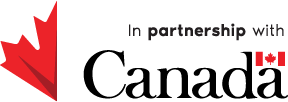Women’s Voice and Leadership – Guatemala
The Situation
Indigenous women suffer extremely high levels of violence and widespread human rights violations in Guatemala. Despite how widespread these issues are, the marginalization of Indigenous women is mostly invisible to the rest of Guatemalan society.
Four out of five Indigenous women live in poverty. They are three times more likely to live in extreme poverty than non-Indigenous women. The life expectancy for Indigenous women is 13 years less than non-Indigenous women's, and maternal mortality for Indigenous women is twice as high in Guatemala as for non-Indigenous women. This elevated maternal mortality is linked to higher malnutrition, lack of prenatal care and access to health services.
Collective action can be a powerful part of shifting deep inequalities and advancing women's rights. However, the structural racism that Indigenous women and their families face translates into huge roadblocks to their progressive organizing work.
Poverty, violence, discrimination and limited formal education make it much more difficult for Indigenous women's organizations and community groups to do strategic planning, fundraise and monitor the progress of their programs and campaigns. On top of this, available funding is often short-term, unreliable, insufficient and geared towards specific projects rather than the necessary work of strengthening organizational capacity, leadership and collective organizing.
The Women's Voice and Leadership Program is a worldwide initiative by Global Affairs Canada to support local and regional women’s organizations and movements seeking to empower women and girls, advance the protection of women's and girls' rights and achieve gender equality.
DETAILS
LOCATION
Guatemala
DURATION
4 years, 9 months (2019-2024)
Lire la description du programme en français (PDF).
OUR SUPPORTERS
This project is undertaken with the financial support of the Government of Canada, provided through Global Affairs Canada, and the generous Canadian public.

What are we doing?
FUNDING
Short-term and multi-year funding to support the equality-seeking programs and advocacy work of Indigenous women's rights organizations in Guatemala.
SUPPORT
Direct support to build on the existing leadership, programming and advocacy work being done by the Tz'ununija' network and its member organizations.
NETWORK BUILDING
Critical network and alliance building, both nationally and internationally, focused on advancing the human rights of Indigenous women in Guatemala.
What have we achieved so far?
Women's Voice and Leadership — Guatemala has achieved significant milestones in empowering women and advancing gender equality by collaborating with the only national Indigenous women’s movement in Guatemala, the Tz'ununija' Indigenous Women's Movement, working with member organizations in Totonicapán, Chimaltenango, Baja Verapaz and Alta Verapaz. So far, we have:
- Worked with 2,582 women and 443 men from Tz’ununija’ and over 26 other women's rights organizations.
- Helped create over 100 safe spaces, like meetings or gatherings, where people can feel comfortable discussing important things, taking care of themselves, and having meaningful conversations.
- Designed and implemented 12 plans to change social norms, collaborating with influential community leaders.
- As a result, more Tz’ununija’ member organizations are making decisions at different levels. Specifically, 47 of these organizations have representatives in decision-making spaces, whether in their communities, towns, departments, or at the national level. Additionally, 25 supported organizations are now using better governance and management methods.